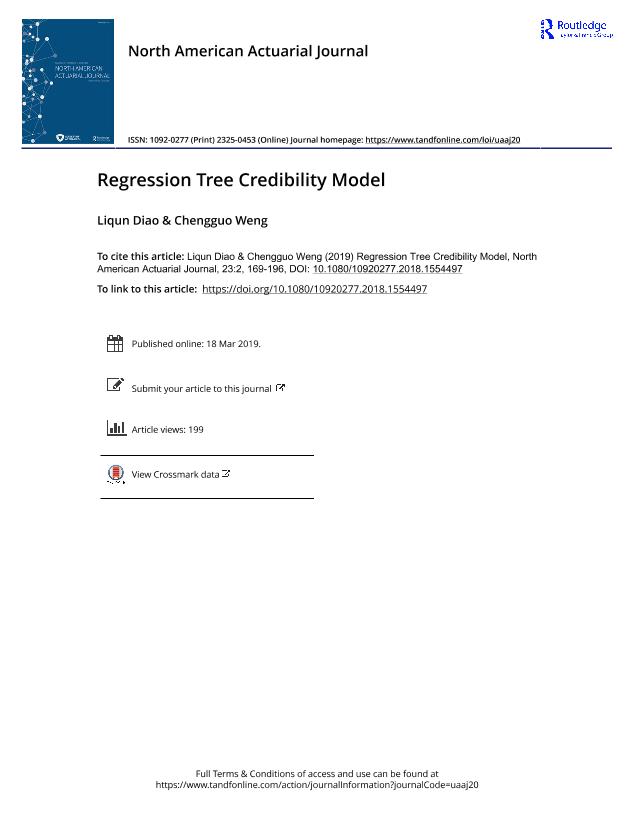Regression tree credibility model

Contenido multimedia no disponible por derechos de autor o por acceso restringido. Contacte con la institución para más información.
| Tag | 1 | 2 | Valor |
|---|---|---|---|
| LDR | 00000cab a2200000 4500 | ||
| 001 | MAP20190021104 | ||
| 003 | MAP | ||
| 005 | 20190715150856.0 | ||
| 008 | 190708e20190603usa|||p |0|||b|eng d | ||
| 040 | $aMAP$bspa$dMAP | ||
| 084 | $a6 | ||
| 100 | 1 | $0MAPA20190009508$aDiao, Liqun | |
| 245 | 0 | 0 | $aRegression tree credibility model$cLiqun Diao, Chengguo Weng |
| 300 | $a29 p. | ||
| 520 | $aThis article applies machine learning techniques to credibility theory and proposes a regression-tree-based algorithm to integrate covariate information into credibility premium prediction. The recursive binary algorithm partitions a collective of individual risks into mutually exclusive subcollectives and applies the classical Bühlmann-Straub credibility formula for the prediction of individual net premiums. The algorithm provides a flexible way to integrate covariate information into individual net premiums prediction. It is appealing for capturing nonlinear and/or interaction covariate effects. It automatically selects influential covariate variables for premium prediction and requires no additional ex ante variable selection procedure. The superiority in prediction accuracy of the proposed algorithm is demonstrated by extensive simulation studies. The proposed method is applied to the U.S. Medicare data for illustration purposes. | ||
| 650 | 4 | $0MAPA20080602437$aMatemática del seguro | |
| 650 | 4 | $0MAPA20080618575$aTeoría de la credibilidad | |
| 700 | 1 | $0MAPA20080119546$aWeng, Chengguo | |
| 773 | 0 | $wMAP20077000239$tNorth American actuarial journal$dSchaumburg : Society of Actuaries, 1997-$x1092-0277$g03/06/2019 Tomo 23 Número 2 - 2019 , p. 169-196 |

